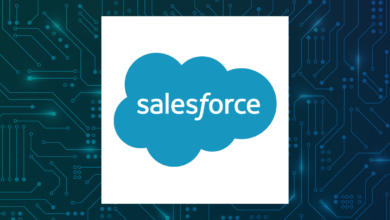The Power of AI in CRM

In today’s highly competitive business landscape, organizations are constantly seeking innovative ways to gain a competitive advantage. One powerful solution that has emerged is the integration of artificial intelligence (AI) with customer relationship management (CRM) systems. This combination opens up a world of possibilities for organizations, enabling them to engage with customers in a more intelligent and data-driven manner.
By harnessing the power of AI in CRM, organizations can gain a deeper understanding of customer behaviors, preferences, and patterns. This invaluable insight paves the way for higher customer satisfaction through personalized and efficient interactions. However, to fully leverage the benefits of AI in CRM, organizations must prioritize data accuracy, privacy, and security. These best practices form the foundation of successful customer relationships.
Now, let’s dive into the exciting realm of AI CRM use cases that can revolutionize customer engagement.
1. Business Intelligence: Unleashing the Power of Data
Integrating AI with CRM software enables organizations to aggregate and analyze vast amounts of customer data from various touchpoints. Through machine learning algorithms, AI can detect patterns, trends, and anomalies, providing businesses with deeper insights and personalization opportunities. This transformative approach influences sales, marketing, and customer service strategies, empowering organizations to make informed decisions and align with customer needs.
2. Sales Optimization: Targeting the Right Leads
AI enhances CRM sales modules by employing predictive analytics to score leads based on their conversion potential and past interactions. This empowers sales teams to prioritize efforts on high-value prospects, making sales processes more efficient. By leveraging historical data and AI models, sales teams can adapt strategies proactively and personalize follow-up communications, ultimately increasing engagement and conversion rates.
3. Marketing Personalization: Tailoring Campaigns for Maximum Impact
AI CRM systems dynamically segment customers based on real-time data, enabling highly targeted marketing campaigns. By analyzing purchase history, browsing behavior, and engagement levels, organizations can tailor marketing messages to individual preferences. AI algorithms also help forecast the effectiveness of different strategies, optimizing marketing efforts for maximum impact.
4. Customer Service: Enhancing Support with AI Chatbots
Implementing AI chatbots in customer service strategies enhances efficiency by providing immediate, round-the-clock support. These chatbots use natural language processing (NLP) to understand inquiries and provide contextually relevant responses. Over time, they continuously improve through machine learning. AI-powered chatbots and virtual assistants within CRM platforms guide customers through various processes, from troubleshooting to purchase completion.
5. IT Efficiency: Streamlining Operations with AI
AI and automation within CRM systems improve IT operations efficiency by automating routine tasks and streamlining processes. By freeing up IT teams from mundane tasks, AI enables them to focus on strategic initiatives and complex problem-solving. Ticket routing and initial diagnostics can be automated, speeding up issue resolution times and optimizing IT resources.
6. Revenue Operations Optimization: Driving Growth through Informed Decisions
AI-driven personalization in CRM plays a crucial role in optimizing revenue operations. By providing actionable insights and predictive analytics, AI aligns marketing, sales, and customer service efforts, driving revenue growth through informed decision-making and strategic planning. Predictive insights help identify upsell and cross-sell opportunities, enhancing an organization’s revenue potential.
7. Lead Management: Automating and Improving Lead Scoring
AI automates the lead qualification and scoring processes in CRM systems, allowing sales teams to focus on the most promising leads. Machine learning models provide insights into lead behaviors, enabling tailored outreach strategies to improve conversion rates. By analyzing online behavior and demographic information, organizations can prioritize leads that are most likely to convert.
8. Process Optimization: Streamlining Operations and Personalizing Interactions
By incorporating AI into CRM, organizations can optimize processes and enhance personalized customer interactions. AI helps pinpoint inefficiencies, suggests improvements, and automates tasks wherever possible. With AI’s capabilities, workflow processes can be mapped out, bottlenecks identified, and tasks automated, leading to more streamlined operations.
By embracing AI in CRM, organizations can transform the way they engage with customers, gain a competitive edge, and drive growth. The possibilities are limitless, and the benefits are undeniable. Are you ready to embark on this revolutionary journey towards customer-centricity?
FAQs
What is AI CRM?
AI CRM refers to the integration of artificial intelligence (AI) technologies with customer relationship management (CRM) systems. It allows organizations to leverage AI capabilities to gain deeper insights into customer behaviors, preferences, and patterns, leading to more personalized and efficient interactions.
How does AI enhance CRM?
AI enhances CRM by aggregating and analyzing large amounts of customer data, identifying trends and patterns, and providing actionable insights. It empowers organizations to optimize sales, marketing, and customer service strategies, resulting in improved customer engagement, satisfaction, and overall business performance.
What are some popular AI CRM use cases?
– Business intelligence: AI analyzes customer data to provide deeper insights and inform strategic decisions.
– Sales optimization: AI helps prioritize leads and personalize sales strategies.
– Marketing personalization: AI enables targeted marketing campaigns based on real-time customer data.
– Customer service: AI chatbots provide round-the-clock support and personalized assistance.
– IT efficiency: AI automates tasks and streamlines IT operations.
– Revenue operations optimization: AI-driven insights enhance revenue growth strategies.
– Lead management: AI automates lead scoring and qualification processes.
– Process optimization: AI identifies inefficiencies and suggests improvements for streamlined operations.
The integration of artificial intelligence (AI) with customer relationship management (CRM) systems has the potential to revolutionize customer engagement. By harnessing the power of AI in CRM, organizations can gain a deeper understanding of customer behaviors, preferences, and patterns, leading to personalized and efficient interactions. This article explores various use cases that highlight the benefits of AI CRM in different areas of business.
One of the key benefits of AI integration in CRM is business intelligence. By aggregating and analyzing vast amounts of customer data, AI algorithms can identify patterns, trends, and anomalies. This enables organizations to gain deeper insights and make data-driven decisions. The integration of AI with CRM enhances sales optimization by employing predictive analytics to score leads based on conversion potential and past interactions. This allows sales teams to prioritize efforts on high-value prospects, increasing efficiency and conversion rates.
AI CRM also enables marketing personalization by dynamically segmenting customers based on real-time data. This enables organizations to deliver highly targeted marketing campaigns tailored to individual preferences. AI algorithms can also forecast the effectiveness of different marketing strategies, optimizing efforts for maximum impact.
In customer service, AI chatbots play a crucial role in enhancing support. These chatbots can provide immediate, round-the-clock assistance using natural language processing (NLP) to understand inquiries and provide relevant responses. Over time, AI-powered chatbots continuously improve through machine learning, creating a more efficient customer service experience.
AI integration in CRM systems also improves IT efficiency by automating routine tasks and streamlining processes. This frees up IT teams from mundane tasks, allowing them to focus on strategic initiatives and problem-solving. Ticket routing and initial diagnostics can be automated, speeding up issue resolution times and optimizing IT resources.
Revenue operations can be optimized through AI-driven personalization in CRM. By providing actionable insights and predictive analytics, AI aligns marketing, sales, and customer service efforts to drive revenue growth. Predictive insights help identify upsell and cross-sell opportunities, maximizing an organization’s revenue potential.
Lead management is another area where AI plays a critical role. AI automates the lead qualification and scoring processes, allowing sales teams to focus on the most promising leads. Machine learning models provide insights into lead behaviors, enabling tailored outreach strategies to improve conversion rates.
Finally, AI in CRM enables process optimization by identifying inefficiencies and suggesting improvements. By mapping out workflow processes, organizations can identify bottlenecks and automate tasks to streamline operations. This leads to more efficient and personalized customer interactions.
The integration of AI with CRM offers organizations numerous benefits, including enhanced customer engagement, improved sales and marketing strategies, streamlined operations, and increased revenue growth. By embracing AI CRM, organizations can gain a competitive advantage and drive towards customer-centricity.
For more information on AI in CRM and related topics, you can visit the following links:
– Salesforce: Salesforce is a leading CRM platform that incorporates AI capabilities for personalized customer interactions and improved business performance.
– IBM Watson Marketing: IBM Watson Marketing offers AI-powered solutions that enable organizations to enhance their marketing strategies and drive customer engagement.
– Oracle Customer Experience: Oracle Customer Experience provides AI-driven CRM solutions that help organizations optimize sales, marketing, and customer service operations for improved customer satisfaction and business success.
– Microsoft Dynamics 365: Microsoft Dynamics 365 offers AI capabilities for sales optimization, lead management, and customer service, helping organizations drive growth and improve customer relationships.
Please note that the above links are to the main domains of the respective companies, and not specific subpages.



